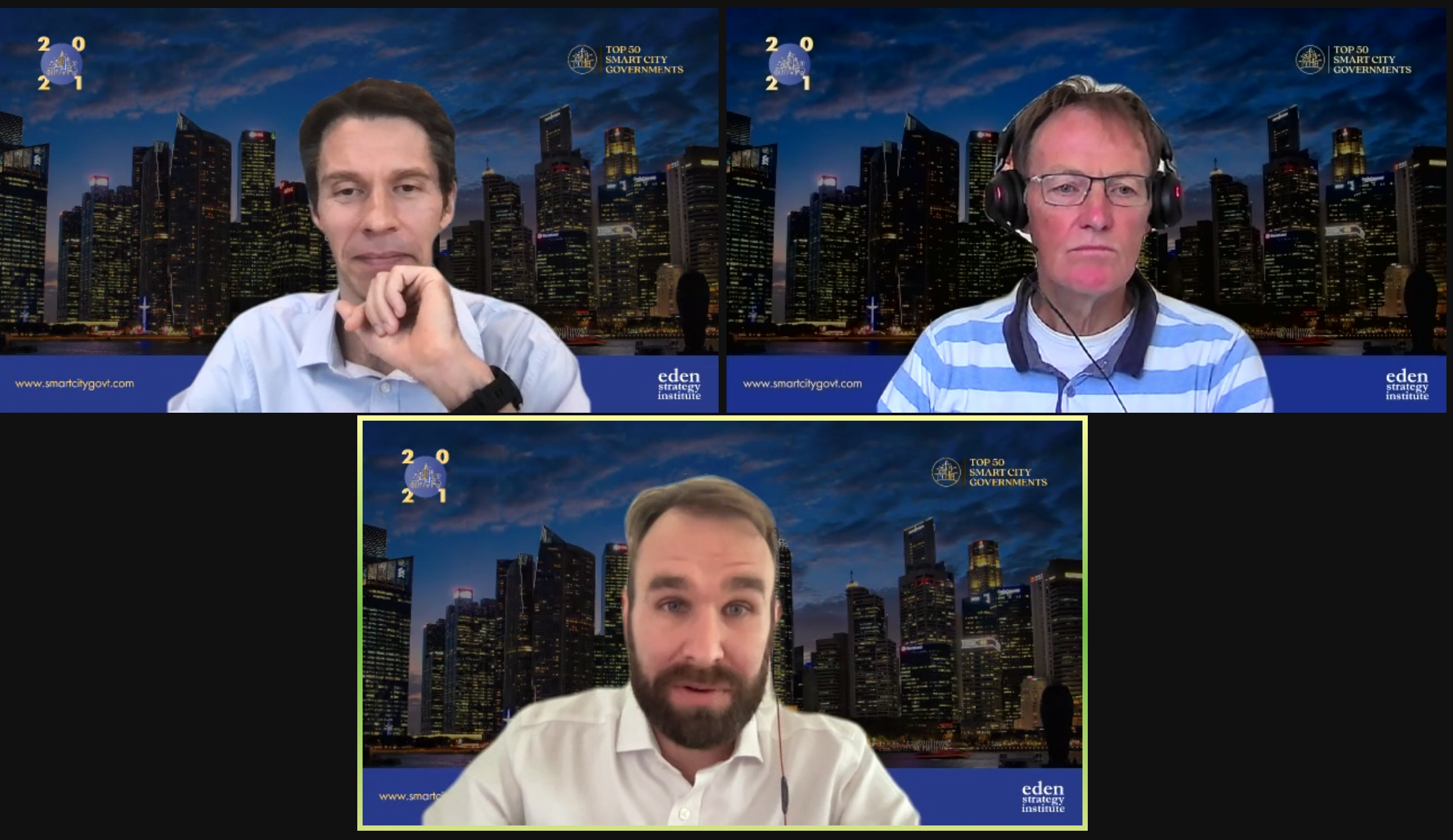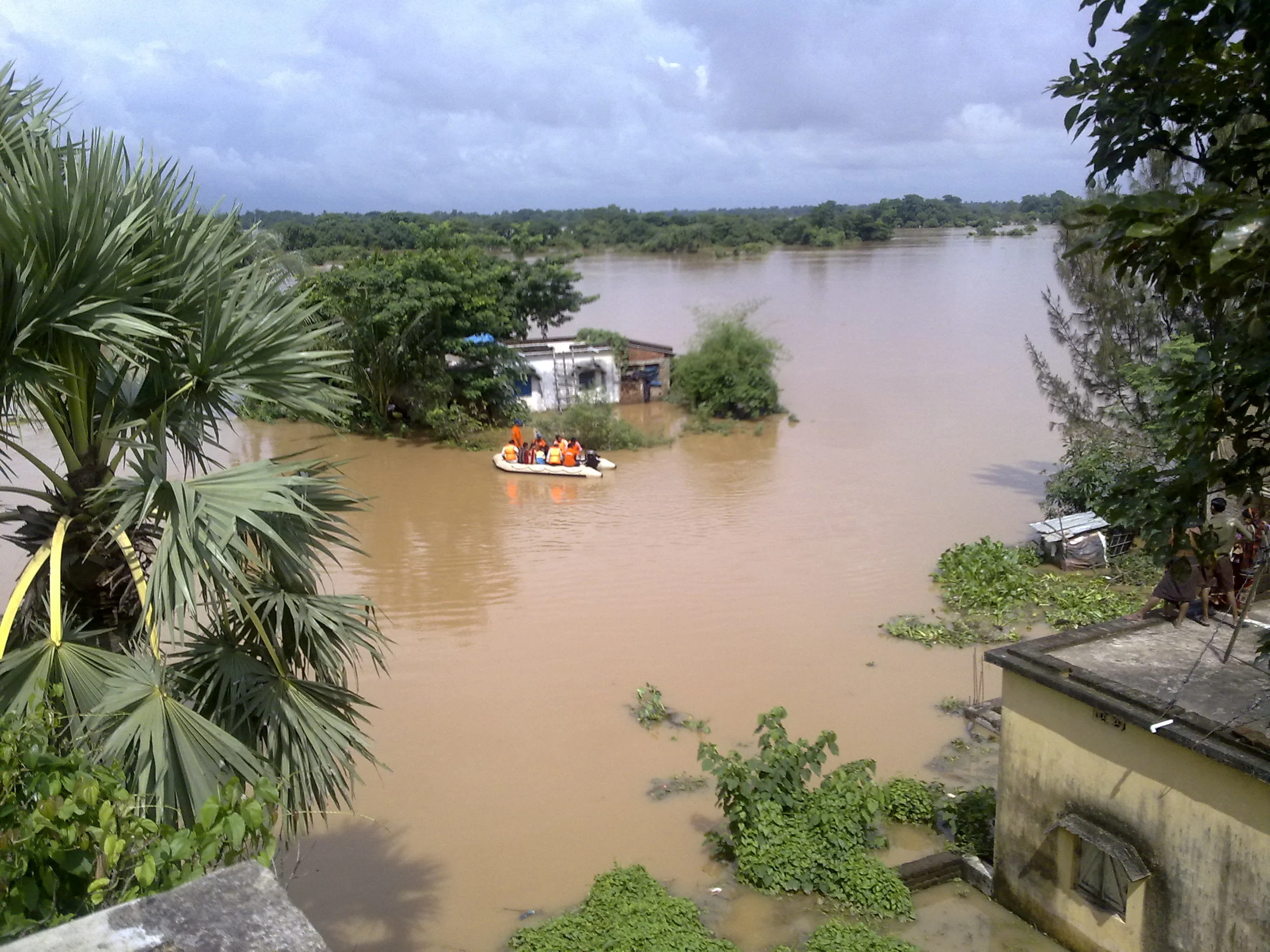Centering Sustainability in Smart City Efforts
We recently hosted our second panel of our Smart Cities Virtual Panel Series, Centering Sustainability in Smart City Efforts, where we had a fantastic opportunity to host Mr. Albert Engels, Senior Process Manager at the Smart Cities Program in Rotterdam Netherlands as well as Mr. Calum Handforth, Advisor at UNDP Global Centre for Technology, Innovation, and Sustainable Development.
Moderated by Eden’s Senior Sustainability Consultant, David Berger, the panel which took place on 22 July 2021 at 1500 SGT, sought to explore how cities are taking bold steps to address global warming and the role they can play in creating a better, more sustainable future.
While technology and innovation play a role in smart cities, a holistic strategy embraces a much larger definition of the term. Eden’s view is one that embraces thoughtful planning and utilises co-creation strategies to develop solutions that address economic, environmental, and social sustainability.
Numerous interesting insights arose from the discussion on how cities can frame, bolster and maintain their sustainability efforts:
Cities should ensure that their sustainability initiatives are tailored to the realities of all their different stakeholders such as residents and businesses. By doing so, such cities will be better positioned to address the specific needs and contexts of their target audience
The success of sustainability initiatives may require micro and macro-behaviour change from such stakeholders. Aside from understanding the specific behaviours that need to change, city officials should strive to measure behaviour change and perhaps most importantly, determine how sustainable some of these behaviour shifts might be. Tools such as the EAST framework, which combines behavioural economics with other sciences and psychology to truly understand and influence behaviour change, have been commonly used to encourage such change
Successful collaboration between public and private players entails clear dialogue between both sides to understand balance of power as well as roles and responsibilities of each party. Asian countries in particular have excelled at this, where applied research from academia has been translated into actionable sustainability initiatives. Such research has been used to build ecosystems and landscapes that target specific issues
Sustainability projects are inherently challenging and there is always the risk of failure. Cities need to accept this risk and recognise that missteps are inevitable. However, they should learn from these experiences and those of other cities, so as not to repeat the same mistakes twice
The panellists also shared that cities should view the idea of being "smart" as a tool for accomplishing a goal, rather than an end. Adopting such a perspective enables cities to thus focus on the real challenge that smart cities must be equipped to tackle;—becoming resilient
Although climate change can be feel like an overwhelming issue for cities to tackle, our panellists shared that they are optimistic as they witness the keenness, collaboration and shared learning between cities from around the world, coupled by the efforts of young people who have been key in driving a sense of urgency.
Stay tuned for the last panel of our series which will focus on creative models in Smart City Financing!
You can also catch our previous panel here.
In case you missed the event, you can catch it here:








